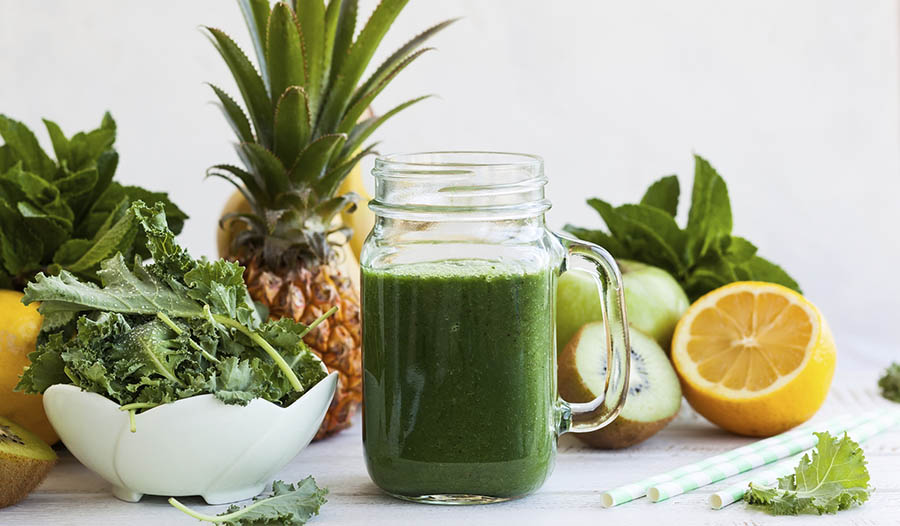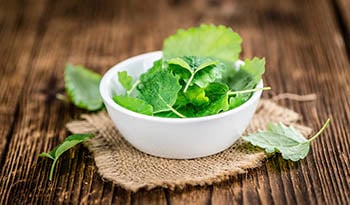The Health Benefits of Spirulina—Blue-Green Algae
DISCLAIMER:This blog does not intend to provide diagnosis...
- In this article:
- Complete Nutrition Source
- Spirulina contains the following:
- Health Benefits of Spirulina
- Allergy Reduction
- Antioxidant Power
- Cholesterol and Blood Pressure Reduction
- Diabetes
- Arthritis
- Detoxify the Body
- Protects the Brain against Alzheimer’s and Parkinson’s Disease
- Cataracts
- Protection from Radiation Therapy and Chemotherapy
- Fibromyalgia
- Cancer
- Safety
- Supplementation

Spirulina is considered a superfood by many. It is an easily digestible nutritional supplement, which belongs to a family of blue-green algae and can be taken in a pill or powder form. Spirulina comes from a type of bacteria scientists call cyanobacterium, specifically arthrospira platensis.
Traditionally, spirulina grew in the warm alkaline lakes of Africa, Hawaii and Mexico among other places. Spirulina was used centuries ago by the Aztecs according to Spanish records from the conquistadors—it grew in Lake Texcoco, Mexico, where the Aztecs called it tecuilati. European explorers observed locals near Africa's Lake Chad using it as food. In our modern era, spirulina has gained the attention of NASA scientists, who have used it as a wholesome nutritional supplement for astronauts in outer space.
Complete Nutrition Source
Spirulina contains a complete source of protein, vitamins, minerals and phytonutrients. In addition, spirulina has anti-inflammatory and antioxidant properties. For those attempting to maximize their nutritional status, adding spirulina is a good place to start.
Spirulina contains the following:
- Phytonutrients: Phycocyanin is the main substance found in spirulina, providing many of its health benefits.
- Protein: 50-70 percent of spirulina by dry weight is made of protein. Spirulina includes a full range of essential (the body is unable to make these) and non-essential (the body can make these) amino acids, which are necessary for the body to make protein molecules.
- Carbohydrates: 15-25 percent of spirulina by dry weight consist of carbohydrates.
- Nucleic acids: 5 percent of spirulina by dry weight consists of nucleic acids, the molecules required to make DNA and RNA.
- Vitamins and Minerals:
- Beta-carotene – A precursor to vitamin A that's beneficial to our skin, eyes and immune system.
- Iron – Helps prevent anemia in those at risk for iron-deficient anemia.
- Vitamin K1 and K2 – These vitamins help the blood to coagulate and help strengthen bones.
- Calcium – Important for bone strength, heart and skeletal muscle function.
- Magnesium – Involved in over 350 biochemical reactions and helps to prevent heart palpitations and muscle spasms.
- Zinc- Important for skin health, a strong immune system and memory.
- Potassium – Crucial electrolyte for daily cell-to-cell communication and overall functioning of our bodies.
- B vitamins – Important for nerve, brain, and heart health. Since those who consume a vegetarian diet tend to lack vitamin B12, daily supplementation with spirulina can provide up to 60 percent of the Recommended Daily Allowance (RDA) requirement for vitamin B12.
- Folic Acid - Important for nerve health and can help prevent birth defects when taken by pregnant women.
- Gamma-linolenic acid (GLA) – An essential fatty acid found in vegetables. It’s considered the healthy omega-6 oil and has anti-inflammatory benefits.
Health Benefits of Spirulina
Spirulina acts as a prebiotic and helps the growth of other beneficial bacteria in the gut. Spirulina contains chlorophyll, which helps alkalinize (optimize pH levels) the body.
Allergy Reduction
Seasonal allergies can cause sneezing along with itchy eyes, ears and nose and much discomfort for those afflicted. Many take anti-allergy medication such as loratadine (Claritin), diphenhydramine (Benadryl) or sometimes use nasal steroid sprays, such as fluticasone (Flonase). For those wanting to avoid pharmaceutical drugs, spirulina may provide you with another option. Studies have shown that spirulina can help reduce allergic rhinitis symptoms when compared to a placebo (sugar) pill. Spirulina does this by “calming down” the cell’s response to allergens—substances like pollen—which create an allergic response. There are no known studies, however, that compare spirulina to prescription medications.
Antioxidant Power
Spirulina contains compounds, including chlorophyll, beta-carotene, zeaxanthin and phycocyanin, which are potent antioxidants that can neutralize oxidation damage caused by free radicals. Examples of oxidation include rust on metal or the browning that occurs when a cut avocado or apple is left out on the kitchen counter. Internally, oxidation can cause damage to tissues and arteries while increasing risk for cancers and vascular disease. Finding a way to allow the body to protect itself from this process is crucial in disease prevention.
Cholesterol and Blood Pressure Reduction
High cholesterol is a risk factor for heart disease. If diet changes and increased exercise are not enough to lower cholesterol, most doctors will prescribe statin drugs, such as atorvastatin (Lipitor), simvastatin (Zocor) and lovastatin among others to help lower cholesterol levels. Many who are concerned about the side effects either avoid these drugs altogether or sometimes consider a more natural approach and use red yeast rice.
Spirulina provides another weapon in the cholesterol-lowering arsenal. A 2008 study of the Mexican population showed spirulina could lower cholesterol values and blood pressure in test subjects.
A more recent study from 2014 showed that 1 gram of spirulina taken daily could lower total cholesterol by 16 percent when taken for 12 weeks. It also lowered triglycerides and LDL (bad) cholesterol. A 2015 study confirmed spirulina’s cholesterol-lowering benefits.
Diabetes
Type 2 diabetes is a leading contributor to heart disease, strokes, kidney disease and memory impairment. Diabetes occurs when the body is unable to use the sugar that is circulating in the blood. A person with type 2 diabetes can control their glucose levels by watching their diet and exercising, and oral medications are frequently prescribed to an individual who needs further assistance. Spirulina may also be a useful addition to one’s daily routine.
Studies using animal models show spirulina can be helpful in controlling blood sugar and preventing complications from diabetes, such as diabetic kidney disease. Another study showed spirulina used topically may be useful in the treatment of diabetic wounds. However, more research needs to be conducted before it becomes commonly used.
Arthritis
"Arthritis" comes from the Greek word arthron, which means "joint" and the Latin word itis, which mean "inflammation". Therefore, arthritis means “inflammation of the joint”. In general, there are two main types of arthritis. The first is osteoarthritis (~95%) and the second is rheumatoid arthritis (~5%).
A 2006 study showed that spirulina has anti-inflammatory properties and could help with all arthritis-related pain. A more recent study in 2015 showed similar findings, indicating that spirulina decreased inflammation by lowering blood levels of COX-2, an enzyme targeted by drugs like ibuprofen and naproxen, without the pharmaceutical side effects.
Detoxify the Body
Spirulina can help detoxify the body from heavy metals. Arsenic, which is associated with increased risk for neurological disease and diabetes can be detoxified from the body using spirulina’s health properties according to a study from India, where the water supply had high levels of arsenic.
Protects the Brain against Alzheimer’s and Parkinson’s Disease
As the population ages, neurodegenerative diseases become more common. They affect not only the patient but also the caregiver. A healthy diet, physical exercise, and brain puzzles such as word searches and crossword puzzles, can all be used as part of an integrative approach in optimizing brain health.
Spirulina may also play a role. A 2010 study in the Journal of Alzheimer’s Disease showed that spirulina, in addition to a few other supplements like curcumin, may prevent the formation of amyloid plaques, which are believed to be the cause of Alzheimer’s disease. More research, however, is needed.
Cataracts
As a person ages, they are at increased risk for cataract formation, which occurs when the lens of the eye becomes cloudy due to oxidation. Studies from 2013 and 2014 show that phycocyanin, the active ingredient in spirulina, can help prevent cataracts from forming. Prevention is the best medicine!
Protection from Radiation Therapy and Chemotherapy
Treatment of cancer with radiation and chemotherapy are a common modality in patients who undergo treatment for cancer. Radiation and chemotherapy are not without serious side effects, however.
Radiation therapy, which is designed to kill cancer cells, can also damage the healthy cells in close proximity. Likewise, chemotherapy can also result in collateral damage of healthy cells as the chemicals circulate through the blood in a quest to destroy cancer cells.
Studies show that taking spirulina can help protect the healthy cells from the negative effects of radiation treatment. A 2001 study showed spirulina’s ability to protect cells from the negative effects of both chemotherapy and radiation therapy while a 2014 study using rodents showed spirulina helps protect the healthy cells from the toxic effect of chemotherapy. If you are undergoing treatment for cancer, consult with your doctor before taking any supplements.
Fibromyalgia
Fibromyalgia is commonly diagnosed when a person has diffuse body pain and muscle tenderness and no other cause can be found. Women are more likely to be affected than men. For many, a “leaky gut” may be a contributing factor. A small study showed that spirulina may be helpful reducing symptoms of fibromyalgia. This is possibly due to its pre-biotic (a food for the intestine’s good bacteria) capacity and its ability to detoxify the body from toxins.
Cancer
A diet high in fiber from fruits and vegetables clearly has anti-cancer benefits, especially against colon, liver and lung cancer. Spirulina and its ability to help prevent and destroy cancer cells still need more research.
A 2014 study concluded that spirulina “…and its components substantially decreased the proliferation of experimental pancreatic cancer”. A 2015 study confirmed spirulina’s main anti-oxidant, phycocyanin, could destroy pancreatic cancer cells. In other words, these studies showed compounds in spirulina stopped pancreatic cancer cells from growing and could destroy existing cells.
Other studies show spirulina may have anti-cancer properties against mouth cancer (specifically, squamous cell), a type of cancer that has become more common over the last two decades.
A 2015 study showed phycocyanin may be a promising anti-cancer compound for the treatment of difficult-to-treat breast cancer, a type of cancer that specialists call "triple negative cancer”. If you have been diagnosed with cancer, check with your physician before adding spirulina to your regimen.
Safety
The FDA considers Spirulina to be “Generally Regarded As Safe” (GRAS), and most experts would recommend a daily dose no greater than 50 grams per day, which is well below common supplement daily doses of 3 to 5 grams/day. There is no evidence of any toxicity at usual doses, and spirulina has been shown to be very safe as a nutritional supplement.
Supplementation
Spirulina can be used as a supplement, and many manufacturers sell it in a pill or powder form. The powder formulation is best when adding to foods. If using spirulina powder, I recommend adding it to a smoothie or perhaps adding it to pancake mix, cookies, brownies, guacamole, popcorn or homemade bread.
References:
- Karkos PD, Leong SC, Karkos CD, Sivaji N, Assimakopoulos DA. Spirulina in Clinical Practice: Evidence-Based Human Applications. Evidence-based Complementary and Alternative Medicine : eCAM. 2011;2011:531053. doi:10.1093/ecam/nen058.
- Spirulina, The Whole Food Revolution by Larry Switzer
- https://ntrs.nasa.gov/archive/nasa/casi.ntrs.nasa.gov/19890016190.pdf
- Eur Arch Otorhinolaryngol. 2008 Oct;265(10):1219-23. doi: 10.1007/s00405-008-0642-8. Epub 2008 Mar 15.
- Biochem Pharmacol. 1998 Apr 1;55(7):1071-6.
- Hawaiian Spirulina by Gerald R. Cysewski, PhD. Copyright 2015 by Cayanotech Corporation
- Inflamm Res. 1998 Jan;47(1):36-41.
- Crit Rev Toxicol. 1993;23(1):21-48.
- Lipids Health Dis. 2007 Nov 26;6:33.
- J Sci Food Agric. 2014 Feb;94(3):432-7. doi: 10.1002/jsfa.6261. Epub 2013 Jul 10.
- Biomed Res Int. 2015;2015:486120. doi: 10.1155/2015/486120. Epub 2015 Jan 22.
- Nutr Res. 2016 Nov;36(11):1255-1268. doi: 10.1016/j.nutres.2016.09.011. Epub 2016 Oct 4.
- Am J Physiol Regul Integr Comp Physiol. 2013 Jan 15;304(2):R110-20. doi: 10.1152/ajpregu.00648.2011. Epub 2012 Oct 31.
- EXCLI J. 2015 Mar 2;14:385-93. doi: 10.17179/excli 2014-697. eCollection 2015.
- Biol Pharm Bull. 2006 Dec;29(12):2483-7.
- Clin Toxicol (Phila). 2006;44(2):135-41.
- J Alzheimers Dis. 2010;19(4):1359-70. doi: 10.3233/JAD-2010-1331.
- Biol Trace Elem Res. 2013 Jan;151(1):59-67. doi: 10.1007/s12011-012-9526-2. Epub 2012 Oct 20.
- Altern Ther Health Med. 2015;21 Suppl 2:68-72.
- Acta Pharmacol Sin. 2001 Dec;22(12):1121-4.
- Am J Pathol. 2014 Apr;184(4):1253.
- Merchant RE, Andre CA. A review of recent clinical trials of the nutritional supplement Chlorella pyrenoidosa in the treatment of fibromyalgia, hypertension, and ulcerative colitis. Altern Ther Health Med. 2001;7:79-80,82-91.
- Pol Merkur Lekarski. 2012 Feb;32(188):138-42.
- BMC Cancer. 2015 Oct 23;15:768. doi: 10.1186/s12885-015-1784-x.
- Nutr Hosp. 2015 Jul 1;32(1):34-40. doi: 10.3305/nh.2015.32.1.9001.

 By Dr. Eric Madrid, M.D.
By Dr. Eric Madrid, M.D.


